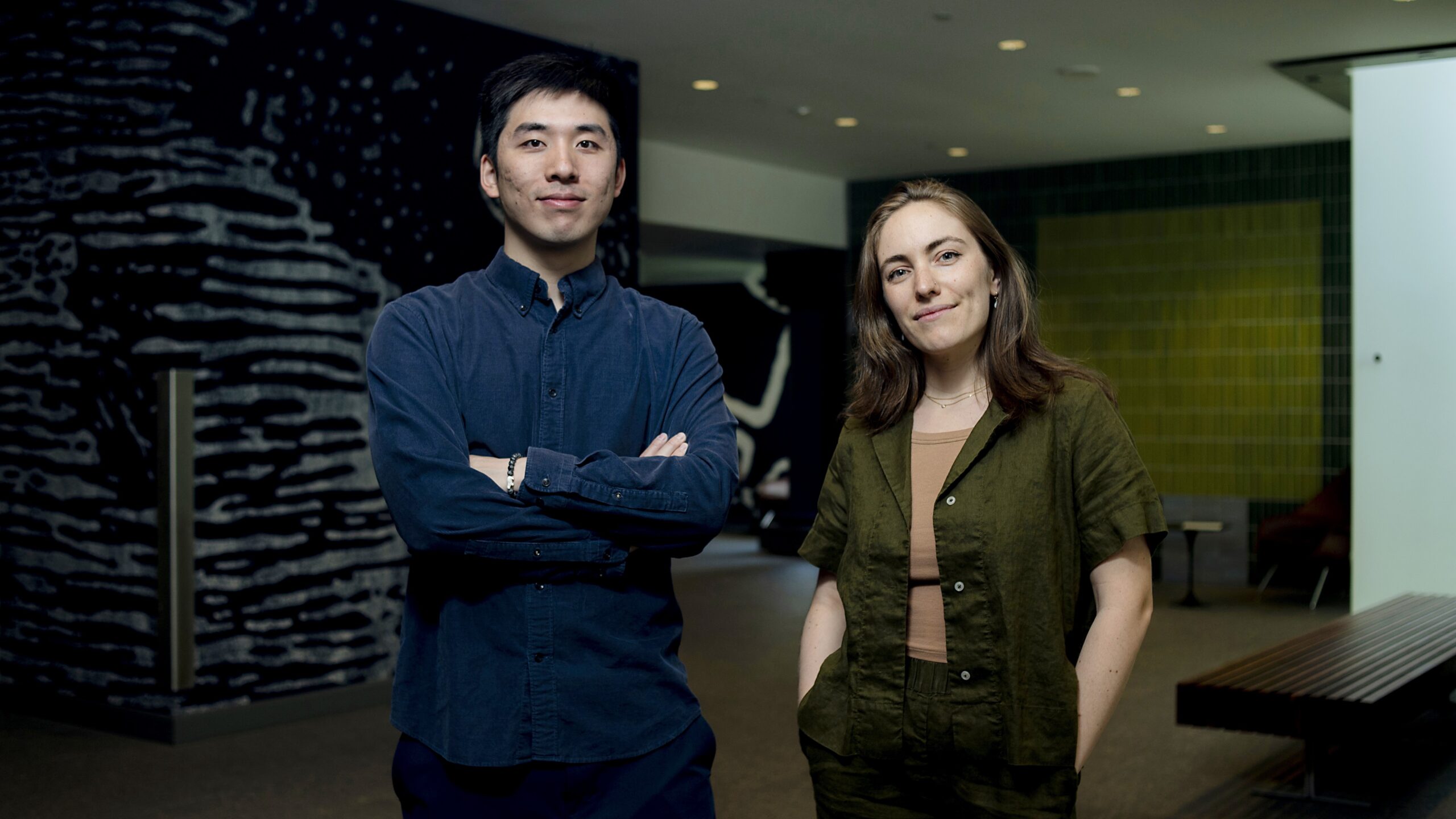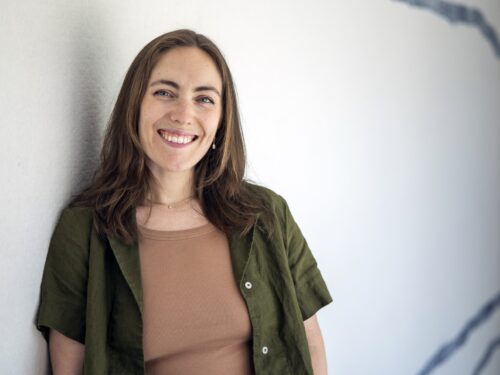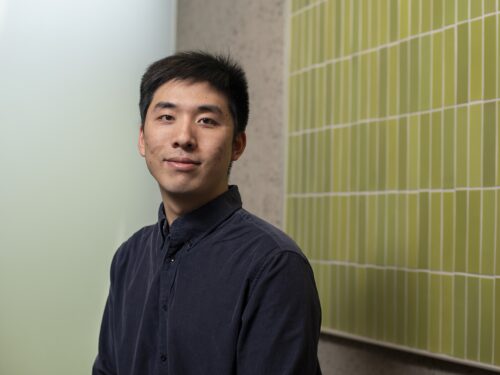
2024 Maeder Graduate Fellows study social norms and the water-energy nexus
Two graduate students, Jordana Composto and Jinyue (Jerry) Jiang, have been awarded the Maeder Graduate Fellowship in Energy and the Environment. Composto and Jiang received the fellowship for their work, respectively, to understand how individuals and organizations respond to climate change and to analyze the role of water and wastewater treatment in catalyzing the energy transition.
The fellowship, which is awarded to one or two graduate students each year who demonstrate strong potential to develop solutions for a sustainable energy and environmental future, is supported by the Paul A. Maeder ’75 Fund for Innovation in Energy and the Environment. The fellowship will cover both students’ tuition and stipend for the 2024–2025 academic year.
Jordana Composto

Composto, a graduate student in psychology and social policy, researches how individuals and collectives work to address climate change. She is advised by Elke Weber, the Gerhard R. Andlinger Professor for Energy and the Environment and professor of psychology and public affairs.
Composto is particularly interested in understanding how people within organizations perceive and interact with social norms, the collectively endorsed rules and expectations that guide how people should act. For instance, she has previously discovered that independent of personal attitudes and beliefs, employees at a company were more likely to act sustainably if they thought their company would support their actions.
“There is a lot of literature suggesting that norms are important in shaping attitudes, behaviors, and policy support. But there is still a lot of heterogeneity — in some contexts they work, and in others, they don’t,” Composto said. “I’m ultimately trying to examine the underlying cognitive mechanisms to understand why and when norms are effective.”
Composto also studies how trust influences the direction and speed of the energy transition. She investigates the level of trust that exists between stakeholders in the energy sector, where there are significant trust gaps, and whether behavioral science interventions can help to build trust for emerging technologies such as carbon capture and sequestration.
“Behavioral science cuts across any climate solution that we have, because people are the ones addressing climate change,” Composto said. “It helps us understand why some solutions are really hard to implement or why the best technologies might not be adopted by individuals or integrated into companies.”
The fellowship will support Composto’s progress toward her professional goal of being a behavioral scientist working alongside engineers and policymakers on multifaceted climate solutions.
“Addressing the climate crisis will take all of us working together,” Composto said. “It’s both a daunting challenge and an inspiring, collaborative issue to work on as a researcher.”
Jinyue (Jerry) Jiang

At the beginning of his graduate career, Jiang studied new technologies for decarbonizing the water and wastewater treatment sectors. Yet as he enters his fifth year as a graduate student in civil and environmental engineering, he has shifted his focus to study how water itself will play a role in the overall decarbonization of society.
“Water and energy are strongly intertwined, and the relationship between them goes both ways,” said Jiang. “Many of the steps for extracting and treating water are surprisingly energy-intensive, and on the other hand, many energy technologies require quite a large amount of water, both as a feedstock and for cooling purposes.”
Advised by Z. Jason Ren, professor of civil and environmental engineering and the Andlinger Center for Energy and the Environment, Jiang began at Princeton working on microbial electrolysis cells, which utilize microorganisms to break down organic matter while generating clean hydrogen as a product. He studied these cells from the lab bench to the pilot scale, even spearheading a demonstration project in Illinois to convert food waste into hydrogen and jet fuel.
Now, Jiang is investigating the costs, opportunities, and feasibility of utilizing treated wastewater as a water source for the emerging hydrogen economy.
One of the most promising methods for clean hydrogen production is electrolysis, in which water is split into hydrogen and oxygen using electricity from renewable sources like solar energy. Yet Jiang said many seemingly ideal locations for such a process, such as California, with its large solar generation capacity, are already water-stressed. Consequently, deploying these technologies at scale in those regions would exacerbate existing water challenges, siphoning away potable water that could otherwise be used for human consumption.
“Currently, almost every electrolyzer is pulling water from the public supply,” Jiang said. “If we could instead integrate these technologies to use treated wastewater effluent, it could be an efficient and widely available way to deploy clean energy without significantly worsening water shortages.”
Since wastewater treatment plants are ubiquitous across the U.S. and the world, Jiang said being able to pair wastewater treatment with clean energy technologies means the treatment plants could have an important role to play in accelerating the energy transition.
“I want to move past the idea that wastewater treatment is just there to get rid of society’s unwanted things,” Jiang said. “There are so many opportunities embedded in the wastewater treatment process for creating valuable products and catalyzing the energy transition.”
The Paul A. Maeder ’75 Fund for Innovation in Energy and the Environment supports the Maeder Graduate Fellowship. The Andlinger Center for Energy and the Environment administers the fund and fellowship. More information on the program and past recipients can be found on the Maeder Graduate Fellowship page.